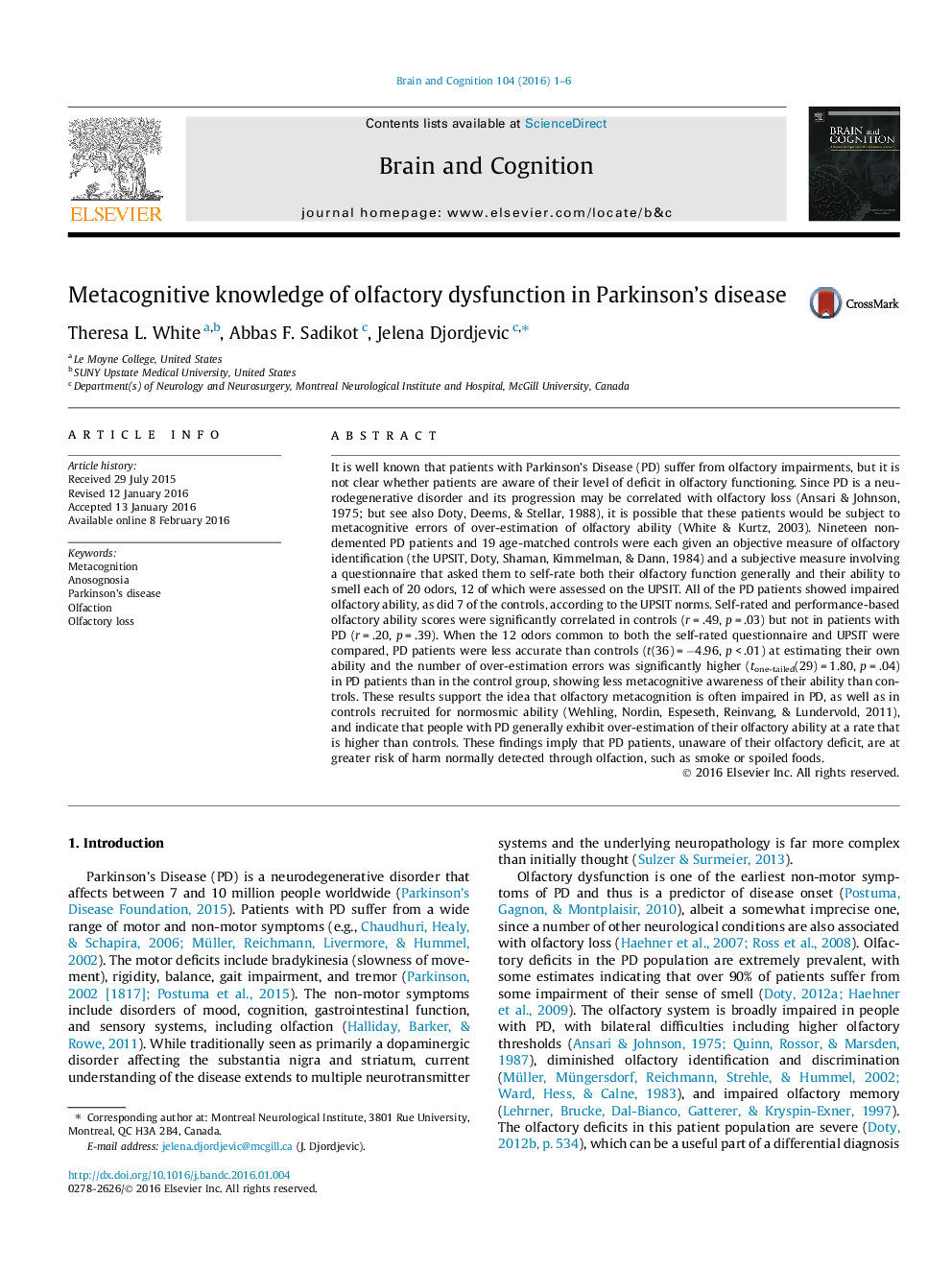| کد مقاله | کد نشریه | سال انتشار | مقاله انگلیسی | نسخه تمام متن |
|---|---|---|---|---|
| 924127 | 1473967 | 2016 | 6 صفحه PDF | دانلود رایگان |
• People with PD show poorer olfactory identification ability than controls.
• People with PD report decreased olfactory ability more than controls.
• People with PD showed poorer awareness of their olfactory ability than controls.
• Results imply that PD patients are at greater risk from harm detected by smell.
• Controls also showed awareness errors, so self-reports of olfaction are unreliable.
It is well known that patients with Parkinson’s Disease (PD) suffer from olfactory impairments, but it is not clear whether patients are aware of their level of deficit in olfactory functioning. Since PD is a neurodegenerative disorder and its progression may be correlated with olfactory loss (Ansari & Johnson, 1975; but see also Doty, Deems, & Stellar, 1988), it is possible that these patients would be subject to metacognitive errors of over-estimation of olfactory ability (White & Kurtz, 2003). Nineteen non-demented PD patients and 19 age-matched controls were each given an objective measure of olfactory identification (the UPSIT, Doty, Shaman, Kimmelman, & Dann, 1984) and a subjective measure involving a questionnaire that asked them to self-rate both their olfactory function generally and their ability to smell each of 20 odors, 12 of which were assessed on the UPSIT. All of the PD patients showed impaired olfactory ability, as did 7 of the controls, according to the UPSIT norms. Self-rated and performance-based olfactory ability scores were significantly correlated in controls (r = .49, p = .03) but not in patients with PD (r = .20, p = .39). When the 12 odors common to both the self-rated questionnaire and UPSIT were compared, PD patients were less accurate than controls (t(36) = −4.96, p < .01) at estimating their own ability and the number of over-estimation errors was significantly higher (tone-tailed(29) = 1.80, p = .04) in PD patients than in the control group, showing less metacognitive awareness of their ability than controls. These results support the idea that olfactory metacognition is often impaired in PD, as well as in controls recruited for normosmic ability (Wehling, Nordin, Espeseth, Reinvang, & Lundervold, 2011), and indicate that people with PD generally exhibit over-estimation of their olfactory ability at a rate that is higher than controls. These findings imply that PD patients, unaware of their olfactory deficit, are at greater risk of harm normally detected through olfaction, such as smoke or spoiled foods.
Journal: Brain and Cognition - Volume 104, April 2016, Pages 1–6
